Do You Need a License For an Electric Bike?
Electric bikes, or e-bikes for the tech-savvy among us, have been zipping into the spotlight like nobody’s business. You’ve probably seen them cruising around your neighborhood, effortlessly conquering hills that would make a regular bicycle whimper in defeat. And guess what? They’re here to stay, and they’re winning hearts all over the world. But wait, here’s the burning question that’s been doing laps in our minds: Do you need a license to ride one of these electric marvels?
Before we dive into the nitty-gritty of e-bike licensing, let’s talk about why electric bikes have become the cool new kid on the block. Just a few years ago, the mere mention of e-bikes might have drawn blank stares, but today, they’re causing quite the stir in the world of transportation.
Why, you ask? Well, it’s all about that sweet combo of convenience and eco-friendliness. Imagine effortlessly gliding through the streets, the wind in your hair, without breaking a sweat, all while emitting fewer emissions than your morning toast. E-bikes are like the love child of traditional cycling and eco-conscious commuting.
But hold on to your helmets because here’s the million-dollar question: In the midst of this e-bike revolution, do you need a license to hop on one and join the ranks of electric adventurers? Let’s peel back the layers of e-bike regulations and find out!
Understanding Electric Bikes
Now we will dive straight into the world of electric bikes, often referred to as ebikes. First off, what exactly are they? Well, think of an ebike as your regular bike’s snazzy cousin. It’s got all the standard bicycle parts – pedals, handlebars, two wheels – but with a twist. Literally! Ebikes are equipped with an electric motor that gives you an extra push when you need it.
So, how do they work? It’s a bit like having a superhero sidekick. When you pedal, the motor kicks in, offering you a boost of power. And don’t worry, it’s not a “take-over-the-world” kind of power; it’s more like a friendly nudge to make your ride smoother. There are also ebikes with a throttle, where you simply twist a handlebar grip to activate the motor, no pedaling required. It’s like having a personal chauffeur for your bike.
Now, let’s talk about the perks. Ebikes are a double whammy of goodness. First, there’s the eco-friendliness angle. Well, here’s a fun fact: Riding an ebike can often be a more sustainable choice than hopping in a gas-guzzling car. They produce fewer emissions, making Mother Nature do a happy dance.
But wait, there’s more! Ebikes can also do wonders for your health. You might be thinking, “Wait, doesn’t the motor do all the work?” Well, yes and no. You still get a workout because you’re pedaling, but you get to choose the intensity. Feeling lazy? Let the motor do the heavy lifting. Feeling like a fitness guru? Pedal like a champ. It’s like having a built-in personal trainer.
So, to sum it up, ebikes are the cool kids on the block. They’re eco-friendly, they keep you active, and they’ve got that electric mojo that’s taking the world by storm. But, hold on tight, because that license question is still hanging in the air, and we’re getting closer to answering it!
Different Types of Electric Bikes
Next up, it’s time to explore the electric bike universe and discover the different types of these two-wheeled wonders. Remember our burning question – “Do you need a license for an electric bike?” Well, the type of ebike you’re riding might just have something to say about it.
1. Pedal-Assist Ebikes:
Picture this: you’re pedaling away, enjoying the breeze, and suddenly, you feel like you’ve got the legs of a Tour de France champion. That’s the magic of pedal-assist ebikes. They’re designed to give you a boost only when you pedal, kind of like a trusty sidekick. These bikes are the darlings of eco-conscious commuters and fitness enthusiasts alike.
2. Throttle-Controlled Ebikes:
Now, if you’re feeling a bit more laid-back, you might opt for a throttle-controlled ebike. These are like the “Easy” mode in a video game – twist the grip or press a button, and you’re off, no pedaling required. It’s like having a mini rocket under your seat. Perfect for those days when you just want to cruise without breaking a sweat.
So, how does the type of ebike relate to our licensing conundrum? Well, here’s the scoop: many places treat pedal-assist ebikes as regular bicycles. No license needed, just hop on and ride. They’re seen as the friendly, eco-friendly neighbor in the biking world. But, and it’s a big but, some regions might require licenses for throttle-controlled ebikes. Why? Because they can pack a bit more speed and power, making them a tad more like motorized vehicles in the eyes of the law.
Before you jump onto your ebike adventure, always check your local regulations. It’s like knowing the rules of the road in a new town. And don’t forget our question, “do you need a license for an electric bike?” It’s your compass in the world of ebike laws.
Licensing Requirements by Location
It’s time to embark on a journey through the land of electric bike licensing. We’ve been asking, “Do you need a license for an electric bike?” and guess what? The answer might vary depending on where you are in the world.
1. Licensing Rules by Country:
In some countries, e-bikes are embraced with open arms, and you can cruise without a care in the world. Take the Netherlands, for example. They’re like the Disneyland for e-bike lovers. No license needed, just pedal away! Meanwhile, in countries like the United States, things can get a bit patchy. Federal laws say e-bikes are generally fine, but states can have their say. In New York City, for instance, they require a license for certain types of e-bikes.
2. State-Specific Regulations:
Zooming in a bit, you’ll find that within countries, states can have their own say about e-bike licenses. In New Mexico, they’ve got their own set of rules that can be a bit complicated. If your e-bike hits certain speed limits or has a throttle, you might need a special license. But just hop across the border to Oregon, and you’re back in the “no license needed” territory. The same is true in Virginia where a license is not needed to operate an electric bike.
3. City-Level Quirks:
But wait, there’s more! Some cities within states have their own unique regulations. For example, in San Diego, there are strict rules about where you can ride your e-bike and what kind of license you might need. For example, class 3 bikes require riders wear a helmet and are not permitted on bike paths or trails unless allowed by local authorities.
So, what’s the takeaway here? It’s like a patchwork quilt of regulations out there, folks. Always check the local rules before you hit the road on your e-bike adventure. And don’t forget our question, “do you need a license for an electric bike?” because it’s your compass in this maze of e-bike laws.
Factors Influencing Licensing
Several factors come into play in whether you need that elusive ebike license. Remember, it’s all about speed and power, and there might be age restrictions lurking in the background.
1. Speed and Power:
The need for a license often depends on how speedy and powerful your e-bike is. Some places draw the line at a certain speed limit. For example, if your e-bike can hit speeds like a gazelle on roller skates, you might need a license. The idea is that the faster and more powerful your e-bike, the more it blurs the line between a bicycle and a motorcycle in the eyes of the law.
2. Wattage Matters:
Power, my friends, is another key player. If your e-bike has a beefy motor, it might raise eyebrows. High wattage e-bikes are often more regulated because they can zip around like lightning. Lower wattage models, on the other hand, are usually seen as more bicycle than motorbike, and license-free riding prevails.
3. Age Restrictions:
Ah, and here comes the age factor. Some places have rules that restrict young riders from hopping on powerful e-bikes. They figure that teens might not have the experience to handle the extra oomph. It’s like needing a driver’s license before you can take the Ferrari for a spin.
So, it’s a bit of a balancing act, folks. Speed, power, and age can all play a role in whether you need that e-bike license. And guess what? It’s all in the spirit of keeping riders safe and streets orderly.
Remember to keep in mind if you do need a license for an electric bike because it’s your key to unlocking the mysteries of e-bike licensing in your area.
Ebike Laws and Regulations
E-bike laws and regulations keep the wheels turning smoothly and safely on the road for riders and the community. Remember our question, “do you need a license for an electric bike?” Because it’s all about the rules of the road.
1. Speed Limits and Classes:
In many places, e-bikes are classified into different categories based on speed and power. Class 1 e-bikes usually have a maximum assisted speed of 20 mph (32 km/h), while Class 2 e-bikes can reach that speed with throttle control. Class 3 e-bikes can go up to 28 mph (45 km/h). These classes can impact where you can ride and whether a helmet is required.
2. Helmet Laws:
Ah, helmets, the trusty protectors of noggins. Some regions insist that e-bike riders wear helmets, especially if you’re cruising on a Class 3 e-bike. Safety first, right? It’s like wearing a seatbelt in a car.
3. Lighting and Reflectors:
Lights, camera, action! Many places require e-bikes to have lights and reflectors for night riding. It’s all about visibility, so you’re not a shadowy figure in the dark. Think of it as your e-bike’s fashion statement.
4. Age Restrictions:
Age is more than just a number in e-bike laws. In some areas, there are age restrictions, particularly for young riders. They want to make sure you’ve got enough experience before you hit the electric turbo boost button.
5. Bike Lanes and Paths:
Know where you can ride? Some places allow e-bikes on bike lanes and paths, treating them like regular bicycles. Others may restrict them from certain areas or set speed limits within those zones.
6. Registration and Licensing:
And of course, our favorite question – licensing. While many places don’t require a special license for e-bikes, it’s always best to check with your local authorities. Some regions might have their own unique twists in the licensing tale.
So there you have it, folks. E-bike laws and regulations are like the road signs of the electric bike world. They’re there to keep you safe and ensure a smooth ride for all. Always double-check the specific rules in your area to stay on the right side of the law.
Obtaining an Electric Bike License
The process of obtaining an electric bike license depends on where you live and the type of ebike you’ve got. So, here’s the lowdown on how to get rolling with that license:
1. Research Your Local Laws:
First things first, hit the internet and do a little research. Look up the specific e-bike laws in your area. Look up online, “do you need a license for an electric bike,” to find relevant information. Know what you’re dealing with before you dive in.
2. Determine License Requirements:
Once you’ve got the scoop on your local laws, figure out if you actually need a license. Check if your e-bike falls into a category that requires one. This could depend on factors like speed and power.
3. Locate the Licensing Authority:
Next up, find out who’s in charge of e-bike licensing in your area. It could be your state’s Department of Motor Vehicles (DMV) or a similar agency. They’re the ones who hold the keys to the licensing kingdom.
4. Gather Required Documentation:
Prepare all the necessary documents. You might need proof of identity, proof of e-bike ownership, and any other paperwork your local authority requires. Make copies and keep the originals handy.
5. Complete the Application:
Now it’s time to fill out the license application. Be sure to provide accurate information, and double-check for any specific requirements mentioned in the application.
6. Pay the Fees:
In some cases, there might be a fee associated with getting an e-bike license. Make sure you’ve got the cash or card ready to cover the cost.
7. Take Any Required Tests:
Depending on your location and the type of e-bike, you might need to take a written or practical test to prove you know the rules of the road. Study up and show ’em what you’ve got!
8. Wait for Approval:
After you’ve submitted your application and any required tests, you’ll need to wait for the approval process to run its course. This might take a bit of time, so be patient.
9. Receive Your License:
Once your application is approved, you’ll get your shiny new e-bike license. Keep it safe, and make sure to follow all the rules and regulations while riding.
And there you have it, the roadmap to getting an electric bike license if you need one in your area. Remember, it’s all about staying safe and keeping things legal as you cruise on your e-bike adventures. Happy riding!
Licensing Vs Regulation
When it comes to electric bikes, there is a distinction between licensing vs registration. We have been discussing whether you need a license for an electric bike, and now we will clarify the difference between these two terms.
1. Licensing vs. Registration:
Here’s the deal: licensing and registration are not the same thing. Licensing means you, the rider, have the necessary permission or approval from authorities to operate your e-bike legally. It often involves tests, paperwork, and possibly fees.
On the other hand, registration is like giving your e-bike an ID card. It’s about recording the details of your electric bike, like its make, model, and serial number, with the relevant authorities. Registration is typically done to keep track of e-bikes in your area but doesn’t necessarily grant you the right to ride one.
2. Do You Need Both?
Now, the million-dollar question: Do you need both a license and registration for your e-bike? Well, the answer depends on where you live. Some regions require both, some only require one, and in some lucky places, you might need neither. It’s a bit like ordering from a menu – your location determines what’s on the plate.
For example, in New York City, they require both a license and registration for certain types of e-bikes. But if you’re in a smaller town that follows state rules, you might only need a license.
So, before you start navigating the world of licensing and registration, be sure to check the menu – I mean, your local regulations – to see what’s required in your area.
Exceptions and Special Cases
Let’s talk about those golden moments when you catch a break and don’t need a license for your electric bike. Yep, there are exceptions and special cases, and they can make your e-bike adventure even sweeter.
1. Low-Powered E-Bikes:
In many places, low-powered e-bikes catch a free ride in the world of licensing. If your e-bike falls within certain wattage and speed limits (often 750W and 20 mph or less), you might be off the hook. They’re seen as more like regular bicycles, so no special license required.
2. Pedal-Only E-Bikes:
Some e-bikes are purely pedal-assist, meaning they only provide a boost when you pedal, with no throttle control. In many areas, these are treated just like regular bikes, no license necessary.
3. Rentals and Sharing Services:
Now, what if you’re eyeing an e-bike rental for a weekend joyride or using a bike-sharing service? Good news! Many of these services take care of the legalities for you. They usually provide e-bikes that are compliant with local regulations, so you can hop on and ride without worrying about licenses.
4. Touring Exceptions:
If you’re taking part in an organized e-bike tour or event, they often have special arrangements with local authorities. This means you can join the fun without dealing with licensing yourself.
Remember, though, that exceptions can be a bit like unicorns – they’re real, but you need to know where to find them. Always check with your rental provider, tour organizer, or local regulations to make sure you’re in the clear.
Tips for Ebike Riders
Here are a few tips for all you e-bike riders out there, whether you need a license or not. Safety and consideration for others on the road are key. Remember, it’s not just about riding; it’s about riding responsibly:
1. Safety First:
Helmet hair is a small price to pay for safety. Always wear a helmet when you ride your e-bike, no matter how short the trip. It’s like your trusty sidekick protecting your noggin.
2. Be Courteous:
Don’t be a speed demon on shared paths. Pedestrians and regular cyclists might not expect an e-bike zooming by. Slow down when passing and give them plenty of space.
3. Obey Traffic Rules:
Traffic lights and stop signs are not optional. Follow the rules of the road, just like you would in a car. Remember, you’re sharing the road with other vehicles.
4. Use Lights at Night:
Lights and reflectors are your friends after the sun sets. Make sure your e-bike is visible to others. It’s like turning on the headlights in your car at night.
5. Use Hand Signals:
Let others know where you’re headed. Use hand signals to indicate turns and stops. It’s a bit like talking to your fellow road users without saying a word.
6. Stay Alert:
Ditch the headphones and stay attentive. Keep your eyes and ears open for unexpected obstacles, like potholes or squirrels.
7. Maintain Your E-Bike:
Regularly check your e-bike’s brakes, tires, and lights. A well-maintained e-bike is a safe one. It’s like giving your trusty steed a check-up.
8. Respect Local Regulations:
Even if you don’t need a license, respect the local laws and regulations for e-bike use. It keeps you on the right side of the law and sets a good example for others.
9. Be Patient:
Remember, not everyone is as fast as your e-bike. Show patience and courtesy, especially when riding in crowded areas.
10. Educate Yourself:
Stay informed about e-bike rules in your area. Knowledge is power, and it helps you make responsible choices on the road.
So, whether you’re e-biking with or without a license, these tips are like a roadmap to safe and considerate riding. Share the joy of e-biking responsibly, and remember to think about whether you need a license for an electric bike because it’s your starting point on the road to responsible e-biking. Enjoy the ride!
FAQs
Q1: What is the minimum age requirement for an e-bike license?
A1: Age requirements can vary by location, but in some places, you must be at least 16 or 18 years old to obtain an e-bike license.
Q2: Are there any specific tests involved in getting an e-bike license?
A2: Some regions require written or practical tests to ensure riders understand e-bike laws and safety measures.
Q3: Can I ride an e-bike without a license if it’s pedal-assist only?
A3: In many places, pedal-assist e-bikes are treated like regular bicycles, and a license is not required for them.
Q4: Do e-bike sharing services typically handle licensing for their users?
A4: Yes, many e-bike sharing services provide e-bikes that comply with local regulations, so users don’t need to worry about licensing.
Q5: Are there special provisions for e-bike rentals regarding licensing?
A5: E-bike rental companies often ensure that their rental e-bikes meet local regulations, allowing customers to ride without obtaining a separate license.
Q6: Can I convert a regular bicycle into an e-bike without needing a license?
A6: Converting a bicycle into an e-bike can have legal implications, and it’s essential to check local regulations to determine if a license is required.
Q7: What type of e-bike might require additional licensing beyond a regular one?
A7: E-bikes with higher power output or top speeds may be subject to additional licensing requirements in some regions.
Q8: Can I transfer my e-bike license if I move to a different area?
A8: Licensing requirements can vary from place to place, so you may need to check and potentially update your license if you move to a new region.
Q9: Are there specific rules regarding e-bike licenses for delivery workers or gig economy riders?
A9: Some areas have regulations tailored to delivery workers using e-bikes, and licensing requirements may differ for this category of riders.
Q10: What penalties can I face if I ride an e-bike without the required license?
A10: Penalties for riding without a license can include fines and potential confiscation of the e-bike, depending on local laws and enforcement practices.
Do You Still Need a License to Ride an Electric Bike in the Rain?
Yes, you still need a license for riding electric bikes in rain. While electric bikes are a convenient mode of transportation, safety measures still apply, especially during adverse weather conditions. Ensuring that you have the proper credentials and understanding of the rules for operating an electric bike in the rain is essential.
Is a License Required to Rent an Electric Bike?
Yes, in most places, a license is not required to rent an electric bike. However, some rental companies may require a valid ID and credit card. The cost of electric bike rental varies depending on the location and duration of the rental.
Conclusion
We’ve navigated the twists and turns of e-bike licensing like pros. The big question, “Do you need a license for an electric bike?” isn’t a one-size-fits-all answer. It’s more like a patchwork quilt of regulations, varying by location, bike type, and more.
But fear not, armed with knowledge, you’re ready to roll responsibly. Remember, even if you’re in a region where a license isn’t required, safe and courteous riding is the name of the game. Helmets, following traffic rules, and being considerate to pedestrians and cyclists are golden rules to live (and ride) by.
And for those of you who do need a license, follow the local procedures diligently. It’s your ticket to a hassle-free e-bike journey.
In the end, it’s all about enjoying the wind in your hair and the freedom of the open road, whether you’re licensed up or just cruising. So, keep those helmets on, pedal responsibly, and keep our roads safe for everyone. Happy e-biking!
Now that we’ve unraveled the mysteries of e-bike licensing, it’s your turn to join the conversation. Got questions, thoughts, or cool e-bike stories to share? Don’t be shy! Drop a comment below and let’s keep the discussion rolling. And hey, if you found this info helpful, why not share it with your fellow riders? The more, the merrier!
RELATED – Electric Bike Buying Guide
RELATED – Electric Bike Insurance
RELATED – Electric Bike Charging Stations
RELATED – Affordable Electric Bikes Under $500
RELATED – Electric Bikes with Long Battery Life
RELATED – Electric Bike Conversion for Folding Bikes
RELATED – Extend the Life of Electric Bike Batteries
RELATED – Ebike Maintenance for Beginners
RELATED – Enhancing Safety with Rearview Mirrors
References
https://www.velotricbike.com/blogs/story-landing/electric-bike-laws-by-state
Kristina Grant is not just an enthusiast but a true authority on electric bikes. Nestled in the coastal beauty of Virginia, Kristina has found the perfect backdrop for her passion for electric biking. As a dedicated wife and homeschooling mom, her life revolves around family, faith, and the thrill of adventure.
Originally hailing from Ohio, Kristina's journey with electric bikes began as a curiosity and quickly evolved into a deep expertise. Her blog is a testament to her love for electric biking, combining her fascination for eco-friendly transportation with her coastal lifestyle.
When she's not cruising the beach on her electric bike, you'll find Kristina indulging in her other loves: long walks along the shore, getting lost in a good book, and cherishing moments with her loved ones. With a heart as big as her love for animals, especially cats, Kristina brings a unique perspective to the electric bike world, grounded in her strong faith in God and her dedication to a sustainable lifestyle.
Through her blog, Kristina shares her extensive knowledge of electric bikes, offering valuable insights, tips, and recommendations to fellow enthusiasts. Whether you're a seasoned rider or a newcomer to the electric bike scene, Kristina's blog is your go-to source for all things electric biking, fueled by her passion, expertise, and the scenic beauty of coastal Virginia.

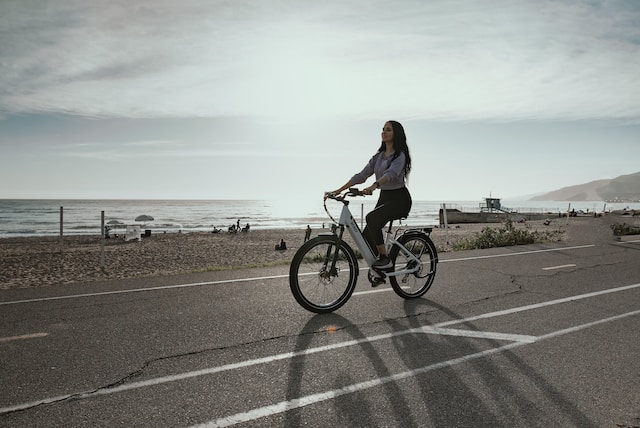
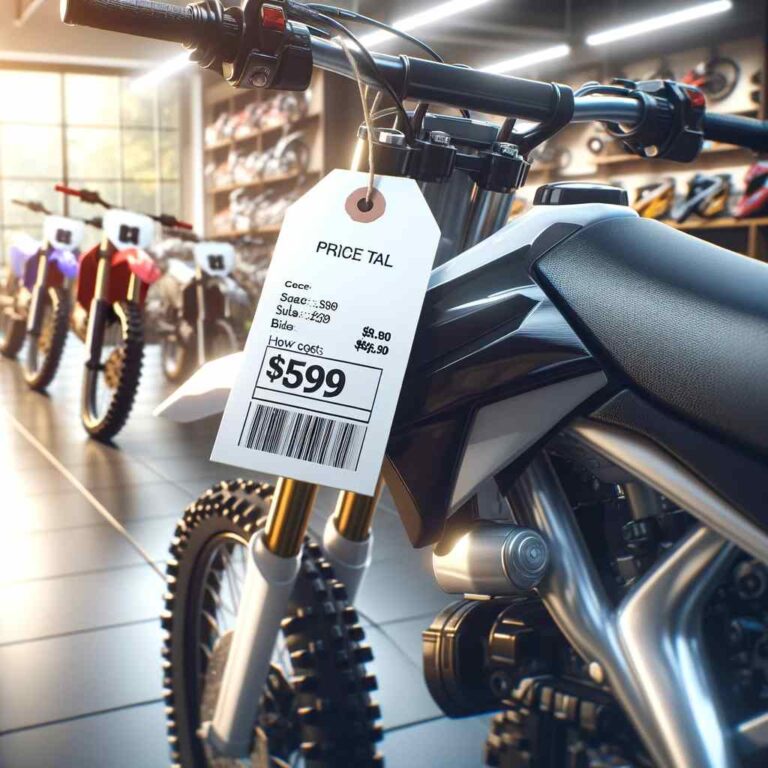
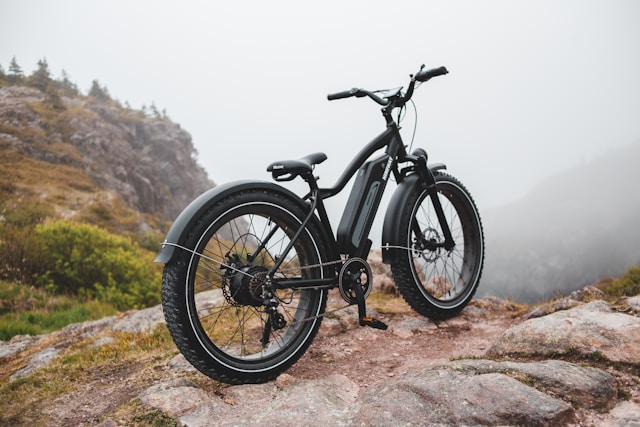
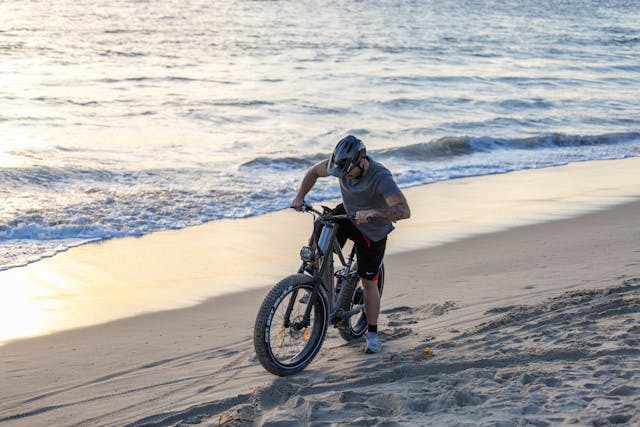
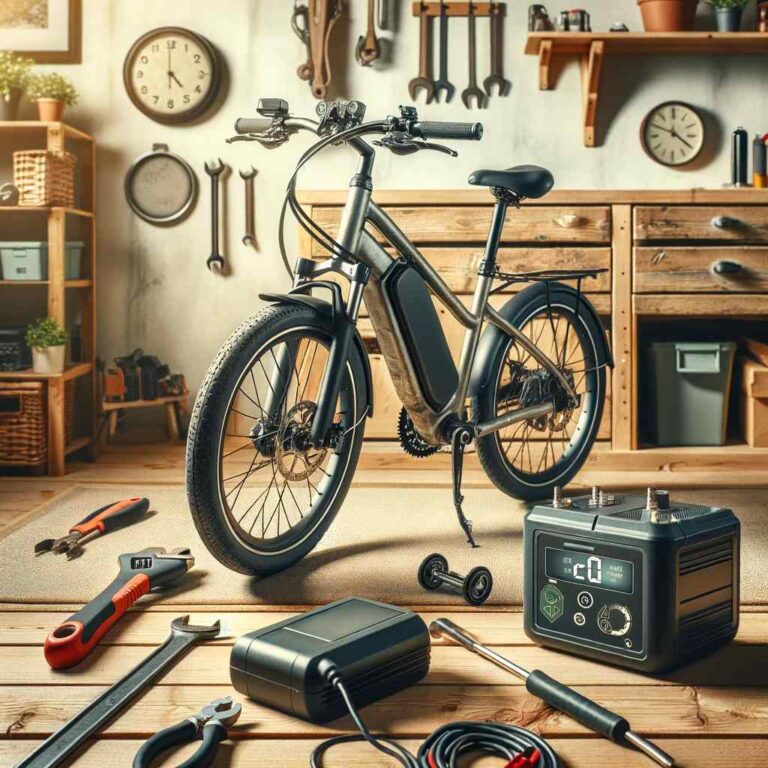
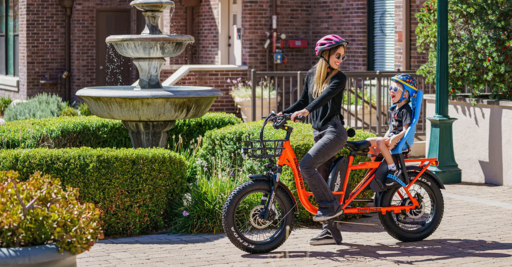
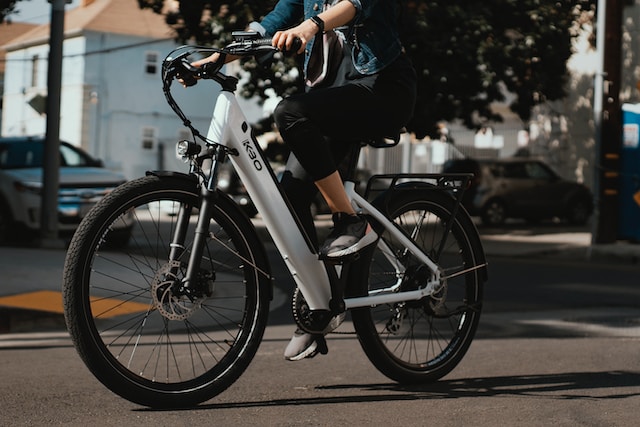
None yet here in the STL region that I know of, but there will be some soon enough due to these folks making bikes with more power than allowed, those trying to look like motorcycles, and people who ride too fast and stupidly in the wrong places.
People always have to mess up a good thing. Disabled folks and others who can’t afford to license and insure another kind of vehicle need these bikes to remain free to ride.
What I can’t figure out is those who have ebikes and appear in these forums wanting regulations. I work with some groups who advocate for trails to be put in place.
If these folks keep breaking the laws already in place those will be more difficult to get support for.
Where I live in Virginia, there is no license required to ride an electric bike. The only requirement is for Class 3 bikes riders must be at least 14 years of age. I agree some people do seem to ruin things for other people. When a person rides an electric bike they should use common sense and not be driving too fast or of course in high traffic areas.